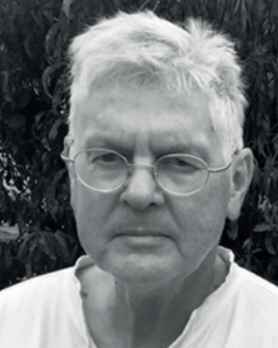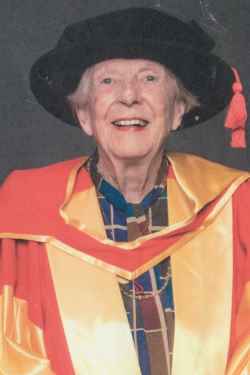Related Research Articles

Melanesia is a subregion of Oceania in the southwestern Pacific Ocean. It extends from New Guinea in the west to the Fiji Islands in the east, and includes the Arafura Sea.

The Lapita culture is the name given to a Neolithic Austronesian people and their distinct material culture, who settled Island Melanesia via a seaborne migration at around 1600 to 500 BCE. The Lapita people are believed to have originated from the northern Philippines, either directly, via the Mariana Islands, or both. They were notable for their distinctive geometric designs on dentate-stamped pottery, which closely resemble the pottery recovered from the Nagsabaran archaeological site in northern Luzon. The Lapita intermarried with the Papuan populations to various degrees, and are the direct ancestors of the Austronesian peoples of Polynesia, eastern Micronesia, and Island Melanesia.

Religion in Papua New Guinea is dominated by various branches of Christianity, with traditional animism and ancestor worship often occurring less openly as another layer underneath or more openly side by side with Christianity. The Catholic Church has a plurality of the population. The courts, government, and general society uphold a constitutional right to freedom of speech, thought, and beliefs. A secular state, there is no state religion in the country, although the government openly partners with several Christian groups to provide services, and churches participate in local government bodies.
Stuart Forbes Macintyre was an Australian historian, and Dean of the Faculty of Arts at the University of Melbourne from 1999 to 2008. He was voted one of Australia's most influential historians.
William Leonard Gammage is an Australian academic historian, adjunct professor and senior research fellow at the Humanities Research Centre of the Australian National University (ANU). Gammage was born in Orange, New South Wales, went to Wagga Wagga High School and then to ANU. He was on the faculty of the University of Papua New Guinea and the University of Adelaide. He is a fellow of the Australian Academy of Social Sciences and deputy chair of the National Museum of Australia.
Dame Ann Marilyn Strathern, DBE, FBA is a British anthropologist, who has worked largely with the Mount Hagen people of Papua New Guinea and dealt with issues in the UK of reproductive technologies. She was William Wyse Professor of Social Anthropology at the University of Cambridge from 1993 to 2008, and Mistress of Girton College, Cambridge from 1998 to 2009.

Peter Sutton FASSA is an Australian social anthropologist and linguist who has, since 1969, contributed to: recording Australian Aboriginal languages; promoting Australian Aboriginal art; mapping Australian Aboriginal cultural landscapes; and increasing societies' general understanding of contemporary Australian Aboriginal social structures and systems of land tenure.

The continent of Australia, sometimes known in technical contexts by the names Sahul, Australia-New Guinea, Australinea, or Meganesia to distinguish it from the country of Australia, is located within the Southern and Eastern hemispheres. The continent includes mainland Australia, Tasmania, the island of New Guinea, the Aru Islands, the Ashmore and Cartier Islands, most of the Coral Sea Islands, and some other nearby islands. Situated in the geographical region of Oceania, Australia is the smallest of the seven traditional continents.
The Telefol people are an ethnic group in the Sandaun Province of Papua New Guinea.
Peter Stafford Bellwood is Emeritus Professor of Archaeology in the School of Archaeology and Anthropology at the Australian National University (ANU) in Canberra. He is well known for his Out of Taiwan model regarding the spread of Austronesian languages.

Elizabeth Anne Reid AO, FASSA, is an Australian development practitioner, feminist and academic with a distinguished career in and significant contribution to national and international public service. She founded, established and worked with a number of pioneering and specialised United Nations institutions, government agencies and non-governmental organisations. Reid was appointed the world's first advisor on women's affairs to a head of government by the Australian Labor Government of Gough Whitlam in 1973.

Delilah Pueka Gore is a Papua New Guinean politician. She was a member of the National Parliament of Papua New Guinea from 2012 to 2017, representing the electorate of Sohe Open. She was Minister for Higher Education, Science, Research and Technology and later Minister for Religion, Youth & Community Development in the government of Peter O'Neill.
Marie Olive Reay was an Australian anthropologist, known particularly for work in the New Guinea Highlands.
Margaret Anne Jolly, born in Sydney, Australia is an historical anthropologist recognized as a world expert on gender in Oceania. She is professor in the College of Asia and the Pacific and Convenor of the Gender Institute at the Australian National University in Canberra. Jolly is also a Fellow of the Academy of the Social Sciences in Australia.
Christopher A. Gregory is an Australian economic anthropologist. He is based at Australian National University (ANU) in Canberra, and has also taught at University of Manchester- where he was made Professor of Political and Economic Anthropology. He studied Economics at University of New South Wales and ANU before pursuing anthropology, following a period in Papua New Guinea. His main research has been in Papua New Guinea and Bastar District, central India, and he also co-authored a research methods manual for economic anthropology, 'Observing the Economy', with Jon Altman.
Kim Rubenstein is an Australian legal scholar, lawyer and political candidate. She is a professor at the University of Canberra.
Susanne Kuehling is a scholar of anthropology and ethnology. She currently works at the University of Regina.
Diane Linley Langmore is an Australian historian best known for her work as general editor of the Australian Dictionary of Biography.

Ellen Maev O'Collins, MBE was an Australian social worker by training, who became Emeritus Professor in the Department of Anthropology and Sociology at the University of Papua New Guinea.
Michelle Nayahamui Rooney has dual Papua New Guinean and Australian nationality. She is a research fellow at the Development Policy Centre of the Australian National University and publishes extensively on matters relating to Papua New Guinea (PNG) and the Pacific islands.
References
- 1 2 "Macintyre, Martha". The Encyclopedia of Women and Leadership in Twentieth-Century Australia. Archived from the original on 27 September 2022. Retrieved 16 October 2021.
- ↑ Golub, Alex (2018). "Encountering Anthropology: An Interview with Martha Macintyre". ANU Press. p. 20. Retrieved 16 October 2021.
- ↑ Macintyre, Martha; Golub, Alex (January 2021). "Encountering Anthropology: An Interview with Martha Macintyre". In Bainton, Nicholas A.; McDougall, Debra; Alexeyeff, Kalissa; Cox, John (eds.). Unequal Lives. Canberra: ANU Press. doi: 10.22459/UE.2020 . ISBN 9781760464110.
- ↑ "A/Prof Martha Macintyre". University of Melbourne. Retrieved 16 October 2021.
- 1 2 "Honorary Life Members". Australian Anthropological Society. Retrieved 16 October 2021.
- ↑ "Honorary Life Members". Australian Anthropological Society. Retrieved 16 October 2021.
- ↑ "Academy Fellow: Associate Professor Martha Macintyre AM, FASSA". Academy of the Social Sciences in Australia. Retrieved 16 October 2021.